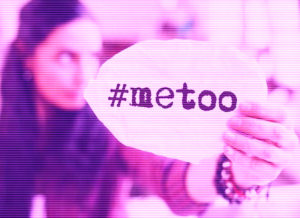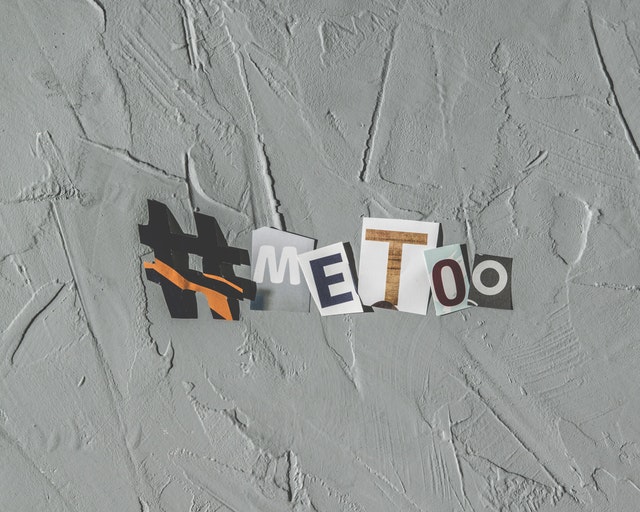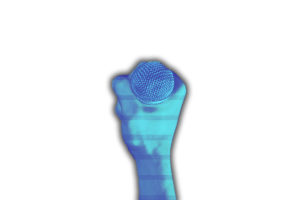On October 5, The New York Times published the sexual harassment allegations brought forth by multiple women against Hollywood mogul, Harvey Weinstein. During the following weeks over 30 women have come forward with allegations of sexual harassment, sexual misconduct, and rape.
According to The New York Times, for nearly three decades, Weinstein received no repercussions for his actions. When women came forward, Weinstein consistently said that these allegations were “off base”. Weinstein skated by each allegation through his entire career by painting accusers as liars or settling lawsuits for their silence. But with the growing number of public accusations from celebrities like Ashley Judd, Cara Delevingne, Lupita Nyong’o, Rose McGowan, and Heather Graham, The Weinstein Company fired its co-founder.
Women aren’t surprised by these reports. As the trending hashtag “me too” clearly indicates, there are plenty of women with similar stories, experiences, and terrors. Moreover, there are more men like Harvey Weinstein out there.
Another terrifying part of these reports are those who have come forward saying they knew and did nothing about it. Men like, Quentin Tarantino. The truth is, Harvey Weinstein and men like him do not exist in a vacuum. Their crimes go unreported and unpunished because those around them stay silent or the perpetrators instill fear in victims to keep them from stepping forward. The culture that alibis and makes possible the abundance of sexual harassment against women in the workforce needs to change. Silence can no longer be acceptable.
#MeToo
 Hollywood is not the only workplace with a sexual harassment problem. As evidenced by the Twitter campaign, #MeToo. Women who experience sexual harassment or assault in the workplace often fear repercussions against them if they were to come forward. Thus, those who should be held accountable go unscathed.
Hollywood is not the only workplace with a sexual harassment problem. As evidenced by the Twitter campaign, #MeToo. Women who experience sexual harassment or assault in the workplace often fear repercussions against them if they were to come forward. Thus, those who should be held accountable go unscathed.
Though many women do not feel comfortable sharing their story online, social media has created a platform for some to speak out. The rise of social media allows for women to make noise in a way they may not have been able to otherwise. A place to call out injustice and actively speak out against sexual violence.
But the voices of the #MeToo campaign are nothing new. Over ten years ago, activist Tarana Burke began the crusade to unify victims of sexual violence. While Alyssa Milano’s post encouraged the most recent twitter campaign, Burke is the true founder of the Me Too movement. Burke has empowered women of color for over a decade to share their stories with each other; her movement’s slogan was, “Empowerment through Empathy.” Similarly Ione Wells, a university student in London, founded the #NotGuilty campaign against sexual violence and victim blaming. In June of 2016, she gave a Ted Talk at the TEDSummit about how we talk about sexual assault online.
Wells said, “We live in an incredibly interconnected world with the proliferation of social media, which is of course a fantastic resource for igniting social change. But it’s also made us increasingly reactive…Our default response has become to leap to react to any kind of grievance by tweeting, Facebooking, hashtagging – anything to show others that we too have reaction.” She continues, “The problem with reacting in this manner en masse is it can sometimes mean that we don’t actually react at all.”
Men’s Issues
While social media campaigns can empower women to speak their truth, it perpetuates the idea that it is the job of woman to make the change. That it is on women to fix the problem. As if the #MeToo is telling women something they didn’t already know. This is far from the truth.
The feminist film theorist Laura Mulvey is best known for her theory known as “The Male Gaze” in cinema. The theory states that women in media are created, developed, and viewed through the lens of the heterosexual male. The viewer is a heterosexual male, therefore women are represented as objects of the male desire. Which means the pleasure is for the male viewer. While her theory was popularized in the 1970’s, the male gaze is still a preeminent representation model in television and film.
Hollywood is still dominated by male influences, the likes of Harvey Weinstein. Therefore, most of the media we consume is through the male gaze. Men like Weinstein control not only what audiences see, but the culture in which it is created. Since they created the culture, it is ultimately up to men to change it.
Jackson Katz, an anti-sexism educator, explains, “That whole range of … gender violence issues, they’ve been seen as women’s issues that some good men help out with, but I have a problem with that frame and I don’t accept it. I don’t see these as women’s issues that some good men help out with. In fact, I’m going to argue that these are men’s issues, first and foremost.”
Men have the power to change the system. While social media can create supportive communities for women to share and empathize with each other, it is not their responsibility to stop the culture where sexual harassment and assault is so commonplace.
Liking your female friends’ #MeToo posts is nice. Posting about your support for the women in your life is important. But it will require so much more. Help promote the women in your workplace. Avoid using insults that demean and put down women. Read the work of women writers. Always seek consent. Talk to your daughters and your sons about women. When it comes to Hollywood, the voices and stories of women must be given an avenue to exist – and not just the stories of white heterosexual women.
Stand up when you see injustice happening. What seems uncomfortable for you is infinitely more terrifying and scary for those who you choose not to stand up for. Apologies like “I knew enough to do more than I did” are simply not good enough.






